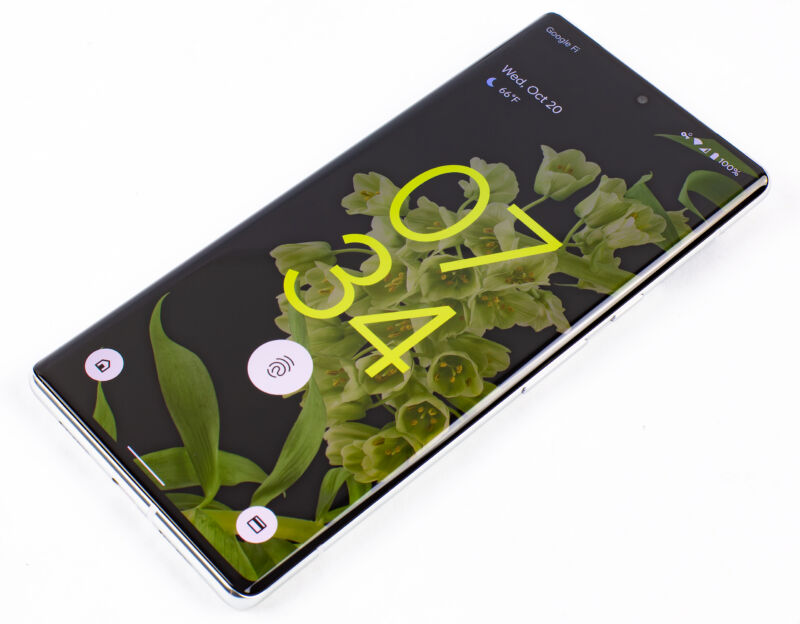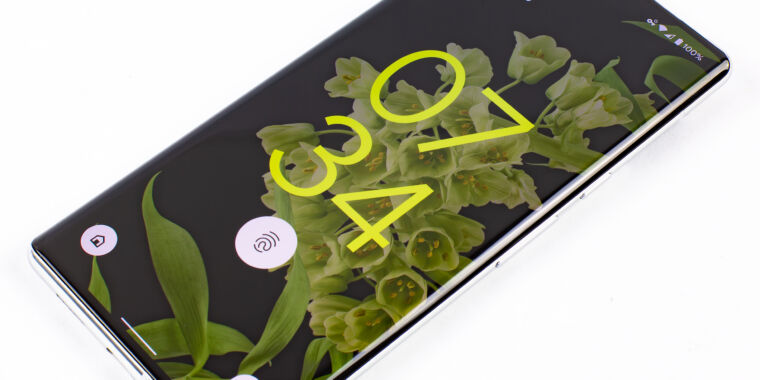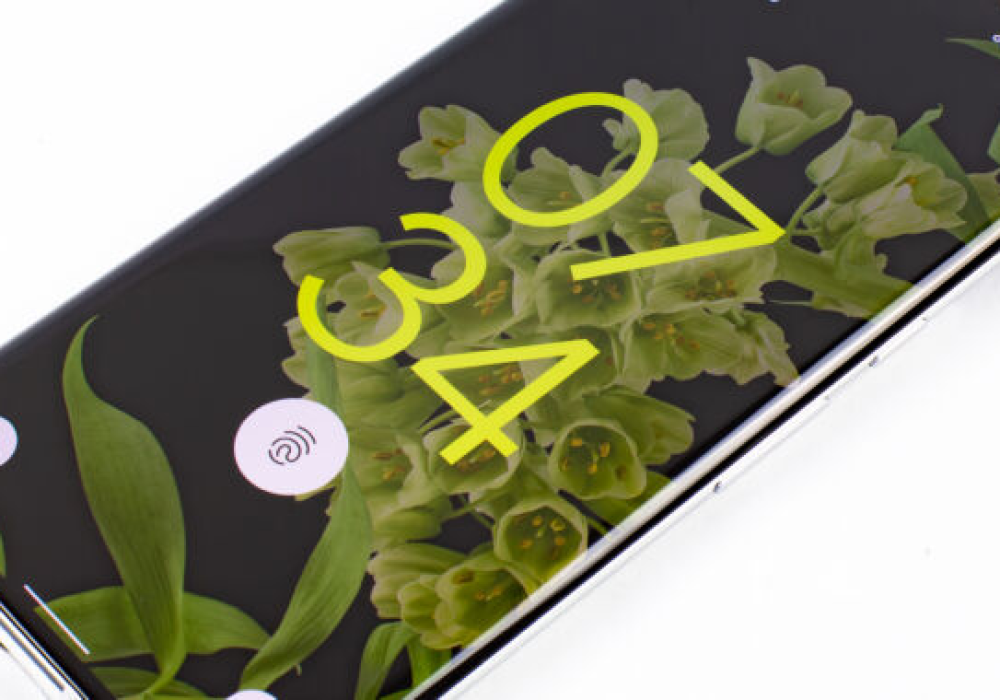
Ron Amadeo
The Pixel 6 is Google’s most competitive hardware release in a long time, but the company is still behind the curve when it comes to quick charging. OnePlus offers proprietary 65 W quick charging, and Qualcomm’s latest charging solution can hit 100 W. Google says the Pixel 6 can be charged at 30 W, which is slower than the best Android phones in its price range.
Our review of the phone noted that the Pixel 6’s charging felt slow, but a report from Android Authority’s Robert Triggs says that the Pixel 6 doesn’t even live up to the modest 30 W claims it makes on the spec sheet. In testing, Triggs could only get the phone to hit peaks of 22 W—and even then, not for very long. In his testing, it took 111 minutes to fully charge the Pixel 6 Pro’s 5000 mAh battery from zero to 100 percent, even with the official “30 W” Google adapter (which is not included in the box).
Samsung is a great counter-example. The 5000 mAh Galaxy S21 Ultra can charge from 0 to 100 in 62 minutes—that’s 49 minutes faster than the “30 W” Pixel 6—despite Samsung only advertising “25 W” quick charging. Triggs says the Galaxy S21 Ultra actually peaks at 28 W during charging—faster than advertised.
Google isn’t outright lying when it comes to the charging speeds of the Pixel 6, but the company has some misleading language on its website. The official spec sheet says the phone can hit “up to 50% charge in about 30 minutes—with Google 30 W USB-C Charger.” So Google’s recommended charger can do 30 W charging, not necessarily the phone, which technically has no wattage listed. The fine print at the bottom of the page also notes that “actual charging speed may be slower,” but that doesn’t mean Google’s marketing is completely honest. Triggs’ testing shows that the phone really does hit 50 percent charge in 30 minutes, but there’s no reason to expect the Pixel 6 to take 81 more minutes to go from 50 percent to 100.

Google charges a 5000 mAh battery a lot slower than Samsung.
Quick charging is easily the most impactful innovation to hit smartphones in recent years. While most phones get small spec bumps every year, quick charging on devices like the 65 W OnePlus 9 Pro actually changes how people use a smartphone. There’s no pressing need to charge your phone every night when you can get the battery to rocket from zero to full in a half hour. The OnePlus 9 Pro charges so quickly that you can just plug it in for a few minutes when it gets low before you head out somewhere. You probably won’t be charging from zero, so you don’t even need 30 minutes—when you’re averaging a 1 percent battery increase every 18 seconds, just plugging the phone in for a few minutes is fine.
There’s some concern that the additional heat from quick charging can degrade the battery faster, but we haven’t seen much hard evidence of that happening. Quick charging is optional, though; if you’re worried about long-term battery degradation, you can always just use a slower charger. Having the option to quick-charge, when it’s truly fast, has proven to be a game changer.
We’ve asked Google for a comment and will update this article if we hear back.











